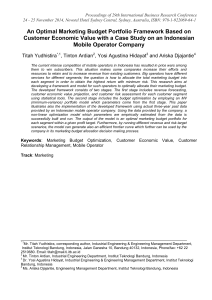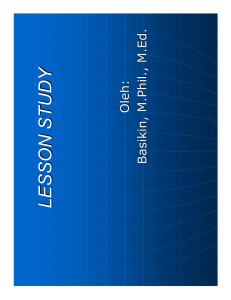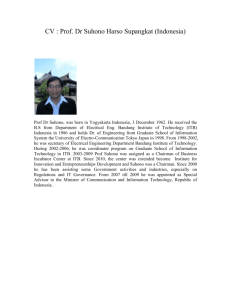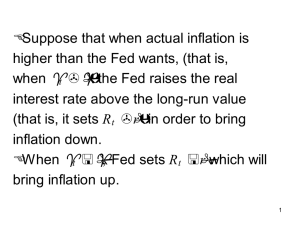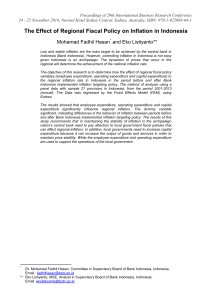Proceedings of 7th Asia-Pacific Business Research Conference
advertisement
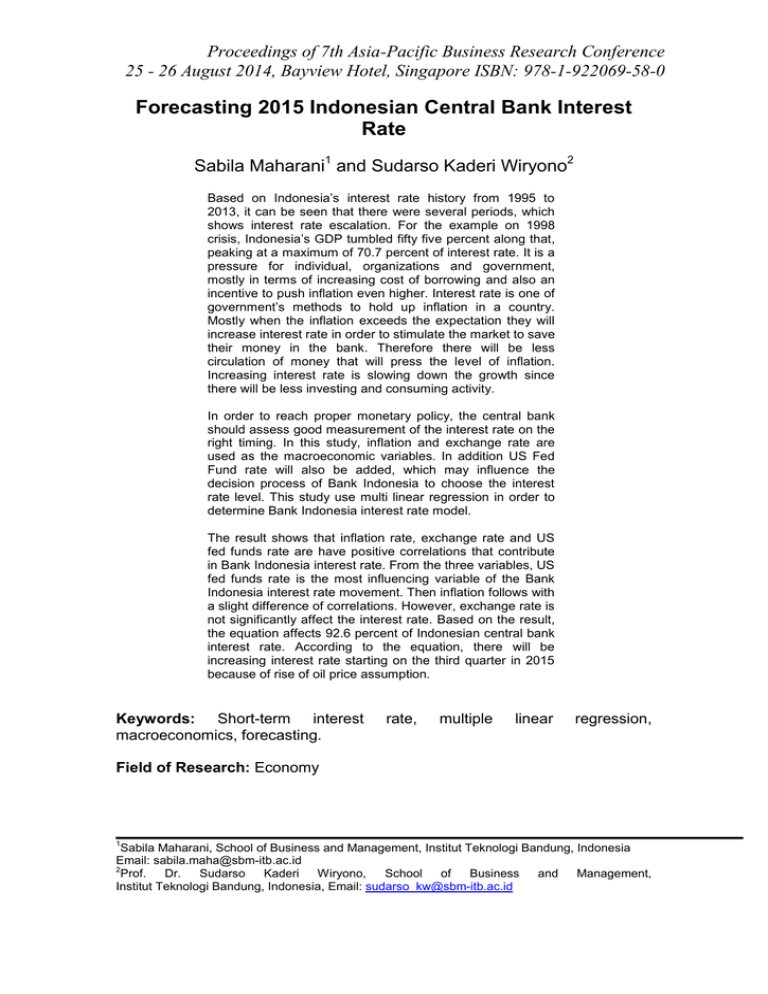
Proceedings of 7th Asia-Pacific Business Research Conference 25 - 26 August 2014, Bayview Hotel, Singapore ISBN: 978-1-922069-58-0 Forecasting 2015 Indonesian Central Bank Interest Rate Sabila Maharani1 and Sudarso Kaderi Wiryono2 Based on Indonesia’s interest rate history from 1995 to 2013, it can be seen that there were several periods, which shows interest rate escalation. For the example on 1998 crisis, Indonesia’s GDP tumbled fifty five percent along that, peaking at a maximum of 70.7 percent of interest rate. It is a pressure for individual, organizations and government, mostly in terms of increasing cost of borrowing and also an incentive to push inflation even higher. Interest rate is one of government’s methods to hold up inflation in a country. Mostly when the inflation exceeds the expectation they will increase interest rate in order to stimulate the market to save their money in the bank. Therefore there will be less circulation of money that will press the level of inflation. Increasing interest rate is slowing down the growth since there will be less investing and consuming activity. In order to reach proper monetary policy, the central bank should assess good measurement of the interest rate on the right timing. In this study, inflation and exchange rate are used as the macroeconomic variables. In addition US Fed Fund rate will also be added, which may influence the decision process of Bank Indonesia to choose the interest rate level. This study use multi linear regression in order to determine Bank Indonesia interest rate model. The result shows that inflation rate, exchange rate and US fed funds rate are have positive correlations that contribute in Bank Indonesia interest rate. From the three variables, US fed funds rate is the most influencing variable of the Bank Indonesia interest rate movement. Then inflation follows with a slight difference of correlations. However, exchange rate is not significantly affect the interest rate. Based on the result, the equation affects 92.6 percent of Indonesian central bank interest rate. According to the equation, there will be increasing interest rate starting on the third quarter in 2015 because of rise of oil price assumption. Keywords: Short-term interest macroeconomics, forecasting. rate, multiple linear regression, Field of Research: Economy 1 Sabila Maharani, School of Business and Management, Institut Teknologi Bandung, Indonesia Email: sabila.maha@sbm-itb.ac.id 2 Prof. Dr. Sudarso Kaderi Wiryono, School of Business and Management, Institut Teknologi Bandung, Indonesia, Email: sudarso_kw@sbm-itb.ac.id
